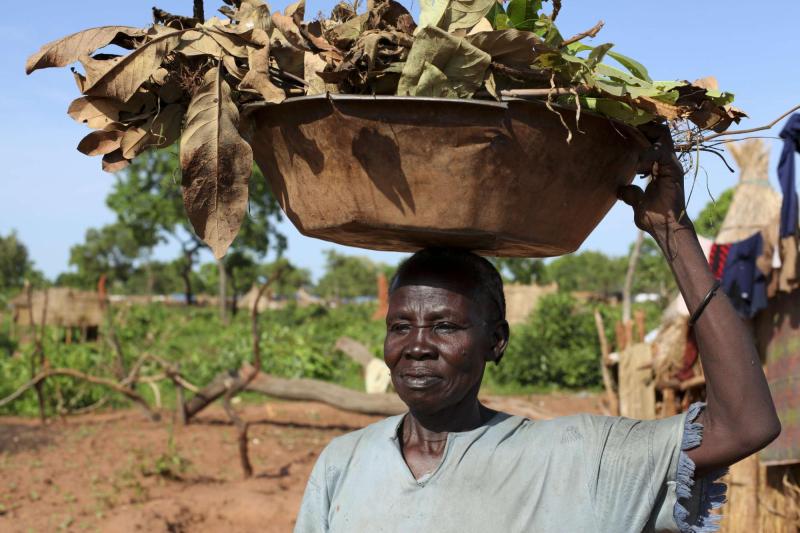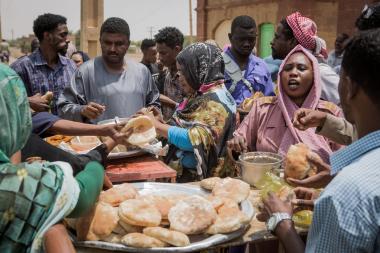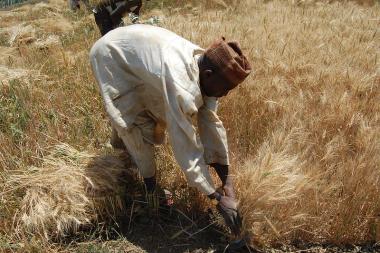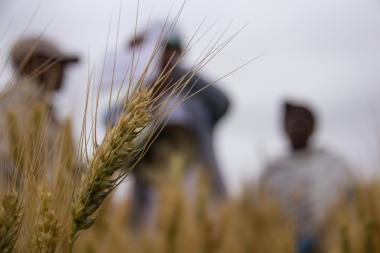Food prices in Mali and Sudan
This study looks at food prices in Mali and Sudan to see how they changed between 2019 and mid-2022, when the prices of global basic goods spiked, in part pushed higher by war in Ukraine.

This study looks at prices of basic goods – above all staple foods – in Mali and Sudan to see how those prices have changed between 2019 (pre-pandemic) and mid-2022, when prices of wheat, maize, oil and fertiliser spiked on world markets, in part pushed higher by war in Ukraine.
How did prices change? What drove price changes? What effects did higher prices have? What public responses were undertaken by governments and non-governmental organisations (NGOs)? We found:
- Prices of cereals in both countries had doubled, or more, since 2019;
- The price rises were (very) largely a result of domestic drivers. In Mali, poor harvests have led to higher cereals prices: harvests losses arising from low rains in 2021 combined with conflict that reduced cultivated areas. The ECOWAS (Economic Community of West African States) trade embargo that applied to Mali in the first half of 2022 interrupted the supply of fertiliser, pushing up its price. In Sudan, extremely high domestic inflation explained most of the price increases in cereals;
- Increases in world prices played only a very small part in higher cereals prices in the two countries;
- Most people coped by economising their diets, cutting out costly foods; giving up small luxuries such as moto taxi rides; and trying to earn more by taking on more work;
- Only those already struggling to make ends meet – people in households lacking assets, savings and labour – were pushed towards eating wild foods and begging; and,
- Public responses – from government, donors, NGOs (both international and local) – were limited compared to the scale of hardship inflicted by higher prices. In Mali, the government tried to subsidise prices of staple foods and other essential items, but with only a small budget to do so, it had seemingly little effect.
- Otherwise, agencies responded by trying to reach hard-hit households with cash grants and food parcels, or by providing nutrition interventions, for example, to protect infants and mothers against malnutrition.
What does this imply for policy-makers? Given price increases in Mali and Sudan were largely driven by domestic factors, four potential responses stand out, namely:
- In both countries, domestic harvests depend on the weather. Whilst that cannot be controlled, irrigation could be expanded to cover four times the current area in Mali and three times the current area in Sudan. Adopting crops and varieties that resist dry spells can help stabilize harvests – something farmers know and practise. Agricultural research can provide them with more options.
- Increased peace and security, especially in Mali, would have an immediate impact as farmers displaced by conflict could go back to their farms. The same applies to the many persons also displaced in Sudan.
- In Sudan, stabilising the macroeconomy – closing gaps between government spending and revenue; between exports and imports; and between money supply and production – is imperative. Reform, however, is not easy because economic policy is linked to the interests of powerful political and military elites.
- In Mali, when trade embargoes are applied by ECOWAS (in response to a coup d’état), agricultural inputs should be exempt.
Economic growth, with broad-based agricultural and rural development, makes these aims easier to achieve. In both countries, growth is hindered by governments that are widely seen as illegitimate and not recognised internationally, governments that show few signs of wanting reform, either political or economic.
Outsiders need to work with local people and local groups who do their best to cope, and sometimes to thrive, in difficult circumstances.
In the short term, some households on low incomes lack the means to cope with higher prices – they need social protection.
Don't miss this subsequent research on 'Food prices in Mali and Sudan: changes, causes, consequences and responses - May 2025 update' here.


